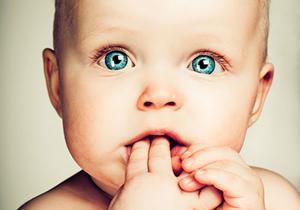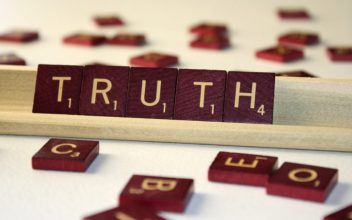“Yeah!” yelled my friend, “I just won 2 dollars with a scratch card!” He then proceeded to talk about it every time I spoke to him for maybe a week. I thought: “You are happy about 2 dollars? Really? What’s the fuss about? It’s the price of a bottle of water these days!”
Obviously the value to him was much higher than the real world value of the money amount. If he had been told in advance that he would receive 2 dollars and then would have received it later, the response would have been much less ecstatic. It was the Unpredictability of the activity and the surprise reward that made it so huge!
Every one of us has received a surprise gift, reward or visit in their lives, so we know how exciting surprise is. But why is surprise and unpredictability so motivating for us? Why are we prone to get addicted to unpredictability (i.e. gambling) or value things we receive without notice much higher than things we expect to happen? And is there a correlation between the power of Unpredictability and our innate Curiosity?
In games and Octalysis Gamification we use the power of Unpredictability and Curiosity (Octalysis Core Drive 7) to drive motivation, often in combo with other Core Drives as we shall see.
Let’s take a closer look at this enchanting motivational couple shall we?
Linking Unpredictability and Curiosity
Curiosity is common to all humans from infancy through adulthood. It is also easy to observe in many other species, like apes, dolphins and cats. Curiosity is within everybody, even though it is not stable and not the same for each person.
Experiences that are novel and complex create a sensation of uncertainty (Unpredictability) in the brain, which we perceive as unpleasant. Curiosity is a way to deal with this uncertainty. And by becoming curious and starting to explore, animals are able to learn more about the new stimulus that in turn reduces uncertainty levels in the brain.
However, balance is important here. Too strong a stimulus results in avoidance of the event that is connected with that stimulus. In contrast, if nothing new happens and the environment is deemed “boring”, people will start to explore until something optimally arousing is encountered. It seems that our brains are looking for the perfect balance of arousal states. Clever blob, huh?
So unpredictability is perceived as negative if there is a lot of uncertainty, especially the kind uncertainty that we cannot control at all. Although it motivates us, it often gives us a bad feeling. Luckily curiosity is our bodies’ automatic response to deal with this feeling. So unless you get addicted to a certain unpredictability habit, like gambling, a bit of balanced unpredictability is good for you. We shall see below why that is.
Why are we curious?
Ever seen a baby crawl on the floor? It’s full of curiosity, right? And it is innate and deeply rooted within us: you display it without having to learn it. So why are humans curious? Most likely curiosity gave human beings a possible evolutionary advantage. Curiosity may have enhanced our memory for novel information and therefore made us better adapters and better survivors especially in changing environments.
Over time, the enlarged human brain allowed complex brain activities such as directed exploration to happen. Curiosity enhances survivability through increased options for survival (hidden water polls in a remote area, some traits that is learned about lions).
Obviously some people are more curious than others. This can be partly explained by genetics, and it has partly to do with your experiences in life. You may have been actively discouraged to explore, by your parents, teachers or bosses. Your brain may then fear curiosity more than uncertainty, which leads to what I would call curiosity imbalance and an overly negative feeling about Unpredictability and Curiosity. Often this can lead to negative consequences: decreased focus ability, impaired learning and memory and a lack of general motivation in life. Let’s see how important a balanced state of Unpredictability and Curiosity really is.

There are some remarkable benefits of having a balanced dose of surprise in your life. Most of these have to do with focus, learning and motivation in general. But there are also real health benefits to surprise.
Attention
Attention basically is the ability to be able to focus and concentrate on stimuli around you. We are normally surrounded by many stimuli, but can only focus on a few of these. Attention allows the brain to better focus on what it perceives to be the most important or relevant. People will look at novel stimuli two to three times more often than known or repetitive stimuli. Novel information demands a LOT more attention than information that is perceived as boring (read: familiar). Unpredictability in balance with Curiosity, then, leads to higher focus levels.
Motivation and reward: the drive to learn or do something new is often pushed by the expectation of rewards. So motivation and rewards are closely and intrinsically tied to curiosity.
A reward can be defined as an effect of some action that positively reinforces that behavior. As we have seen in my earlier blog post (The Neuro-science Behind Octalysis Gamification), many prominent neurotransmitters play a role in our rewards processing mechanism, including dopamine and serotonin. Recent test studies have shown that dopamine may be important for the process of curiosity, most particularly in assigning and retaining reward values for information gained. Midbrain dopamine neurons in monkeys are activated when determining the value of stimuli (for more on brain levels see: Octalysis Gamification: How to Unblock Your Reptilian Brain). Most interestingly, much more dopamine gets released when the reward is unknown and the stimulus is novel. In addition, test subjects that exhibited more curious behavior much better retained information provided in these tests. So unpredictability and curiosity have major effects on our memory as well.
Memory and learning
Surprise also has a huge impact on how effective we learn things. We know now that memory (the process by which the brain can store and access information) and Curiosity are closely linked. To determine whether a stimulus is novel, we must first remember if we have encountered the stimulus before or not. Memory, then, determines the level of novelty, and as such the level of curiosity we have. Inversely, curiosity also affects memory! I already mentioned that novel stimuli capture our attention more and mostly have a reward value associated with them: the anticipated reward of what learning that new information may bring. Stronger associations and more attention devoted to a stimulus, leads to stronger, longer lasting memories of that stimulus. This then makes it easier to recall. A study by the California Institute of Technology, psychologists found that the more curious subjects were about the trivia questions, the higher the memory retention was for novel/surprising answers. Unpredictability leads to better learning!
Taste and other preferences
Unpredictability also has major implications on what we like in life, with unpredictable events wining hands down. In a recent study by the Emory University volunteers had either fruit juice or water squirted into their mouths through a tube. Some got the fluids in a predictable pattern (every 10 seconds) and some in an unpredictable pattern. The subjects were then asked which drink they preferred.
MRI scans revealed that the brain’s pleasure center was most strongly activated when the squirts were unpredictable. This held true regardless of whether the subjects preferred juice or water. So some people preferred water to juice, just because it was delivered to them in an unpredictable way! Powerful discovery huh?

As I stated above, surprise leads to the release of dopamine in our brains. This leads to prevention of bad feelings and depression. So we elevate our mood and we simultaneously build a tolerance for uncertainty, which in turn reduces anxiety. It consequently reduces depression by interrupting unhealthy rumination patterns, and opening the mind to novel ideas and behaviors.
Recent findings by the University of California, Berkeley found that those people who experience more awe in their life—a type of surprise experienced when we find something impressive or powerful— are healthier. Actually here Unpredictability is also strongly connected to Epic Meaning and Calling (Octalysis Core Drive 8: feeling part of something bigger than yourself). Specifically, the researchers found that the “awe” group had lower levels of interleukin-6 (IL-6), a chemical that promotes inflammation, in their bodies. Lower levels of IL-6 is a good thing.
In addition the research demonstrated that being in awe slows down our feeling of time and makes us more helpful to others. Not too bad huh?
Octalysis Gamification and Unpredictability and Curiosity (Core Drive 7)
We frequently design for Core Drive 7 in the Octalysis Gamification Designs. It is one of the key ways to make an experience fun. In fact, according to famous game designer Jesse Schell, and author of the leading book Art of Game Design: A book of lenses, defines the word “fun” as “pleasure with surprises.” No surprise, no fun!
One of our main design principles is the knowledge that most people do not have the ability to calculate chance probabilities in an objective. So even if the reward is small or even unclear, the fact that the outcome is unpredictable is motivational as such. So it is not very likely that users “see through” the unpredictabiity design: the motivational push from unpredictability is there, even if there is little logic to it!
Another principle of our designs is that we do not want unpredictability to reach levels that are too high. As we have seen above, high levels of uncertainty lead to withdrawal from the experience that creates it. If you feel fully out of control, it gives you a bad feeling and you will leave the experience at the first opportunity given. Balance is everything.
Lastly: Core Drive 7 is often coupled with other Core Drive Designs. There are many Core Drive 7 combos possible, but I’ll just mention a few.
It can be the last push that users need to interact with Core Drive 1 (Epic Meaning and Calling) Design. “Wow, look at that amazing church. That must be a special congregation of people!”
We also often pair it with Core Drive 5 Design to mix Social Relatedness with Unpredictability & Curiosity, in order to satisfy people’s craving for finding out what other people do.
The list is endless and Core Drive 7 is a very versatile element of the Octalysis Framework! To know more about Core Drive 7 and specific Game Mechanics to use, visit: The 8 Core Drives of Octalysis Gamification
As always, and similar to every Core Drive that you use in designs: do not let one Core Drive take the upper hand! Too much unpredictabiity leads to wthdrawal and bad feelings. We cannot stress this too much: it’s all about balance. No balance, no fun!
Contact us to know more about how to incorporate Unpredictability and Curiosity Designs in you company’s products!
Also read Yu-kai Chou’s groundbreaking new book for more in-depth Gamification knowledge!
joris@octalysisgroup.com @jorisbeerda1
yukai@octalysisgroup.com @yukaichou




